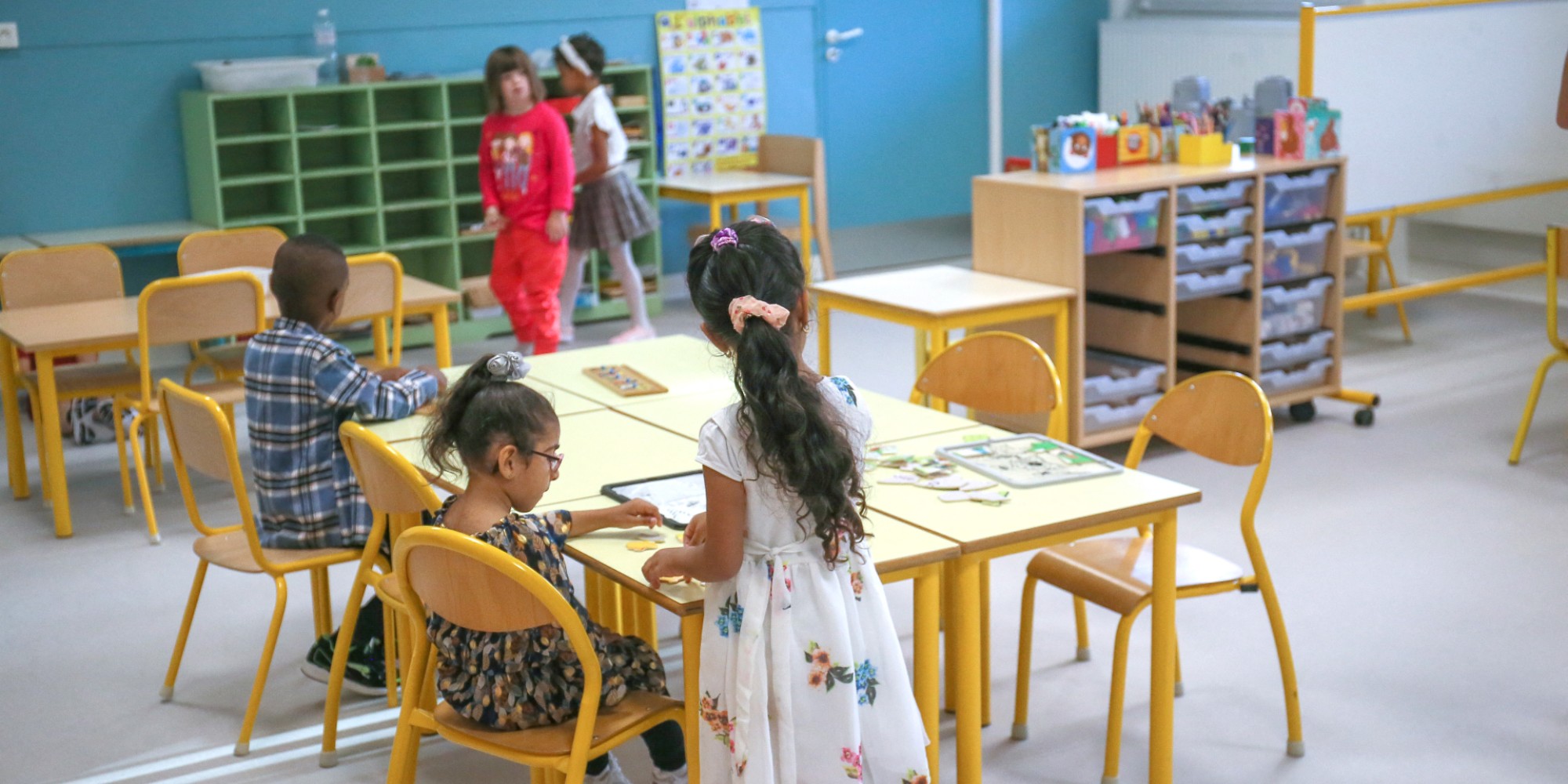Europe 1 05:45, January 30, 2023
Created in 2012, the Espérance suburb network develops the school offer in the districts.
Its founder Éric Mestrallet, guest of Europe 1 this Monday, looks back on the 10 years of his program which now has 17 schools and more than 1,000 students.
For the occasion, he reveals the outlines of an Ifop survey carried out for Espérance suburbs.
Guest of Europe 1 this Monday, Éric Mestrallet, founder of Espérance suburb, looks back on the creation of the 10 years of the program.
Created in 2012, it now has 17 schools, more than 1,000 students, 120 teachers and 90 classes from kindergarten to third grade.
At the time, the founder started from an observation: education in the neighborhoods must be a priority.
The figures are striking, 50% of the pupils in these priority networks do not have the average for the patent, 40% of these young people who live in these neighborhoods find themselves unemployed and 80,000 pupils leave school without having a qualification.
"We cannot be satisfied with these findings and the challenge is not to denounce. It is to find solutions and therefore an entrepreneurial approach to say to get your hands dirty, to give ideas on possible avenues which could see the light of day tomorrow and the day after tomorrow. This in order to allow children to flourish in school, to want to dialogue and that their families trust the school. So many elements that today are lacking today", emphasizes Éric Mestrallet.
>> READ ALSO -
Education: Pap Ndiaye announces first steps for college, "a priority"
64% of French people find that the school works poorly
An Ifop poll for Espérance suburbs, commissioned by the founder, shows that the school is not well regarded.
In France, 64% of French people think that the school works badly.
Faced with these figures, Éric Mestrallet wishes to change the way the education system operates.
"When we have a perception that is not good, perhaps society can have dramatic consequences. It is therefore important to be able to change this perception. In this survey, we see that the French want general culture, be prepared for life in society and have the codes to prepare for the job market", he says.
"With this survey, we have proposed a model, we are showing possible avenues that could inspire National Education with this alliance with parents. In our schools, there are several exchanges a week between teachers and parents, so so that the latter know what is going on inside the school. A mother found it fabulous that the teachers give news of the student even when everything is going well. Because she can be associated with the success of the school. child and can congratulate him. So, collectively, adults push the child towards success", specifies Éric Mestrallet.
>> READ ALSO - Working-class
neighborhoods: how to attract teachers to the least attractive areas?
"They feel excluded from French society"
A question arises: how does this program differ from public school and its course?
"There are small numbers which make it possible to set up a model which offers both academic requirements, with very specific pedagogy, educational support, in particular to help students enter life in society and then a knowledge cultural codes of our country so that they can understand them, appropriate them and live with them. children felt excluded from French society. When you ask students who is French, only a third raise their hand", notes the founder.
"The challenge is to give them the opportunity to understand this treasure of which they are the custodians thanks to this citizenship that they have", he concludes.
What cost?
The Hope for the Suburbs program has had good results.
In all classes and subjects, students exceed the averages of the priority education networks (REP) and sometimes even the national averages.
On the other hand, these schools are out of contract and therefore private.
If it seems to favor poor neighborhoods, this education still has a cost.
“It is still 30% lower than the cost of a pupil in a public school. How do we finance it? Parents pay 50 to 80 euros per month and per child and the rest is now financed by private generosity. We managed to mobilize for this experimentation, this incubation of this new model. This is how we manage to achieve this great adventure", specifies Éric Mestrallet.

